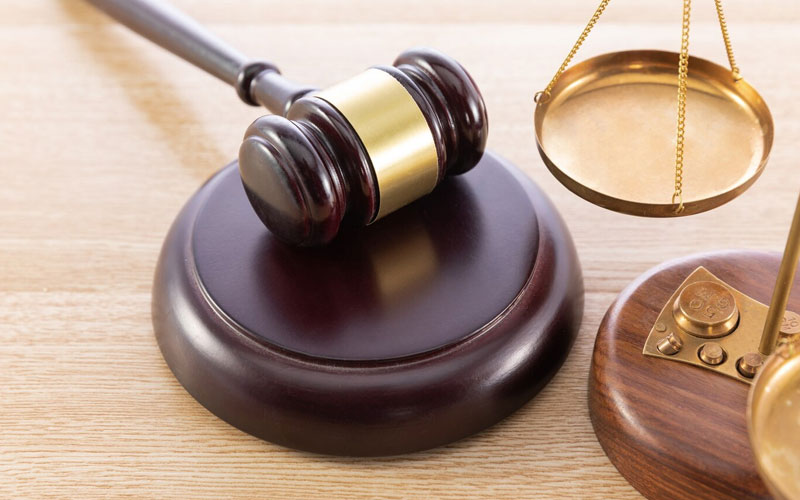active and purposeful military lawyer with more than 4 years of experience
Mechanisms for appealing decisions of military medical commissions
Military medical examination plays a key role in ensuring the defense capability of the state and guaranteeing the rights of military personnel and conscripts to proper protection of their health. Resolutions adopted by military medical commissions (MMC) are decisive for establishing fitness for military service, the causal relationship of diseases, injuries or disabilities, as well as the need for medical and social rehabilitation and assistance. However, as in any field of human activity, errors or inaccuracies are possible during a medical examination or decision-making by the VLC. That is why the legislation provides for the mechanisms for challenging the resolutions of the VLC both in the pre-trial and in the judicial procedure, which is an important guarantee of the protection of citizens' rights.
Military medical examination: legal basis of activity
In accordance with the Regulation on military medical examination in the Armed Forces of Ukraine, approved by the order of the Ministry of Defense of Ukraine dated August 14, 2008 No. 402 (hereinafter - Regulation No. 402), the military medical examination is carried out in order to determine fitness for military service conscripts, military servicemen and conscripts, establishing the causal relationship of diseases, injuries (wounds, contusions, mutilations) and the need and conditions for the use of medical and social rehabilitation and assistance to military servicemen.
In order to conduct a military medical examination, full-time and part-time (permanent and temporary) military medical commissions (MMCs) are created, which adopt relevant resolutions.Resolutions of the VLK are binding. The Central Military Medical Commission (CMMC) is the leading body for military medical examination in the Armed Forces of Ukraine and manages the regional military medical commissions.
Maybe you will be interested to read articles on such topics: collection of debt from wages recovery of wages through court recovery of wage arrears recovery of wages recovery of wages in court recovery of wages through court
Pre-trial procedure for appeal of decisions of the VLK
The legislation provides for the possibility of appealing the resolutions of the VLK in a pre-trial procedure. In particular, in accordance with paragraph 3 of clause 2.12 of Regulation No. 402, in controversial issues related to the conscript's disagreement with doctors' conclusions, issues of control over the objectivity of doctors' conclusions, by decision of the staff VLK, the conscript may be sent for a control examination to a military medical institution .
The pre-trial appeal procedure provides for a review of the decision of the Supreme Administrative Court by a higher instance based on the principle of instance:
1. Resolutions of the regional (city) territorial center of procurement and social support can be appealed to the regional or Kyiv regional regional or city regional regional or city regional regional regional (urban) territorial regional center.
2. The review of the resolutions of the subordinate VLKs (the VLKs of the regions) has the right to be carried out by the VLKs of the regions.
3. Resolutions of any VLK have the right to review the Central VLK, which is the governing body.
Based on the results of the review of the application, the higher instance of the Military Police may decide to conduct a repeat or control medical examination in order to finally resolve the issue of fitness for military service.
In order to appeal the decision of the VLK in the pre-trial procedure, it is necessary to prepare a corresponding application for revision of such a decision and add all the necessary documents issued by the military medical commission.In the application, it is important to clearly state the grounds for the appeal, for example, an undetected disease, an error of the VLC in establishing the causal relationship of the disease, etc.
Judicial procedure for appealing decisions of the VLK
In addition to the pre-trial procedure, the decisions of the VLK can be challenged in court in accordance with the requirements of the Code of Administrative Procedure of Ukraine (hereinafter referred to as the Administrative Procedure Code of Ukraine). Appeals against the decisions of the VLK in court are carried out in the order of administrative proceedings, since the VLK are bodies of military administration that perform authoritative management functions.
The terms for appeal are regulated by Article 122 of the CAS:
1. Three months from the date of delivery of the relevant decision based on the results of the review of the application to challenge the resolution, i.e. in the case of preliminary application of the pre-trial procedure. This term begins to run from the day of delivery of the decision of the higher instance of the VLK based on the results of consideration of the application for revision of the resolution.
2. Six months from the day when the person learned or should have learned about the violation of his rights, freedoms or interests, i.e. from the day the relevant resolution of the VLK was issued.
The size of the court fee for submitting an application to the court by an individual is 0.4 of the subsistence minimum for able-bodied persons. In 2024, it amounts to UAH 1,211.20.
The requirements for the statement of claim and the necessary annexes are submitted taking into account the requirements of Articles 160 and 161 of the Civil Code. In particular, the statement of claim must contain:
• name of the administrative court to which the application is submitted;
• fully named Judicial practice
In its practice, the Supreme Court has developed a number of important positions regarding appeals against resolutions of military medical commissions. In particular, in the decision of June 12, 2020 in case No. 810/5009/18, the Supreme Court expressed the following key provisions:
1. Judicial control over the decisions of the VLK is carried out within the competence of administrative courts. The court cannot replace the VLC and independently determine the degree of suitability for military service, but it has the right to assess the completeness and objectivity of the conducted medical examination and establish the causal relationship of the disease.
2. The court is obliged to verify compliance with the procedure for conducting a medical examination and making a decision of the VLC, as well as to analyze the availability of all the necessary documents on the basis of which the decision was made.
3. If the court finds deficiencies in the procedure for conducting a medical examination or making a decision of the VLK, the decision of the VLK may be declared illegal and canceled with the obligation to conduct a second medical examination.
4. The court does not have the right to independently establish the causal relationship between the illness and military service or to determine the degree of disability. It belongs to the competence of the VLK.
It should be emphasized that the judicial practice regarding the appeal of the resolutions of the VLK is quite contradictory.
For example, an analysis of two court decisions in cases No. 420/5300/23 and No. 480/6410/23 is useful for clarifying the legal approaches to appealing the decisions of the VLK.In case No. 420/5300/23, the Odesa District Administrative Court refused to satisfy the claim for recognition as illegal and annulment of the decision of the military medical commission of the Military Medical Clinical Center of the Southern Region, which declared the plaintiff fit for military service. The court justified its position with the following key reasons:
1. The decision of the garrison VLK, which issued the plaintiff a certificate of suitability, was adopted by the appropriate competent commission in accordance with the procedure established by law in accordance with the requirements of Regulation No. 402. The court has no reason to question the legality of the creation and operation of this VLK.
2. The court does not have the special medical knowledge necessary to evaluate the conclusions of the VLK about the claimant's state of health and his fitness for military service, as this is a purely medical issue. The resolution of such issues belongs to the discretionary powers of professional military medical commissions and specialized expert medical institutions.
3. The law provides for the possibility of appealing the decision of the VLK to a higher level VLK or directly to the Central Military Medical Commission. It is these bodies of the military medical examination that are empowered to review the conclusions of the previous VLK in substance, taking into account additional data and the results of the plaintiff's medical examinations. Judicial practice





























